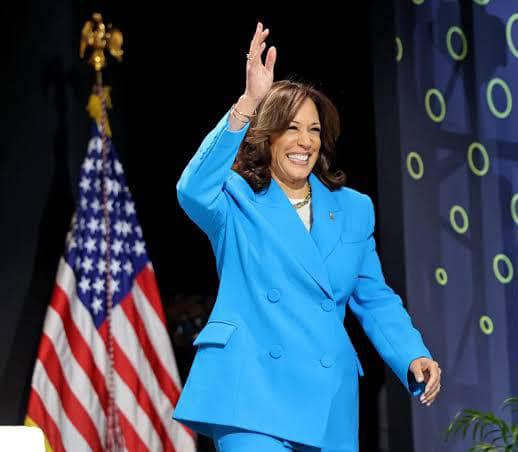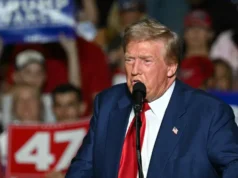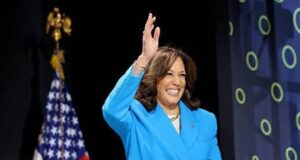Vice President Kamala Harris is set to unveil her economic strategy in her first major policy address as the Democratic Party’s presidential nominee.
In her speech on Friday, Harris will tackle the issue of companies that are unfairly raising prices, a significant move as she outlines her vision for the U.S. economy.

Advertorial
Harris ascended to the top of the Democratic ticket last month, replacing President Joe Biden amid growing concerns about his ability to lead.
Her candidacy has been met with increasing support, bolstered by recent economic reports indicating that inflation is easing.
For the first time in this election cycle, a University of Michigan poll shows that more Americans trust Harris to manage the economy than her Republican opponent, Donald Trump.
 Advertorial
Advertorial
Despite this momentum, Harris faces pressure to clearly define her platform with the Democratic National Convention just around the corner.
While she has hinted at various policy initiatives, she has yet to present a detailed governing plan, often framing her campaign in broader terms as a “fight for the future.”
Critics, including a recent editorial from the conservative Wall Street Journal, argue that Harris needs to articulate a specific agenda to gain the political capital necessary for governing.
 Advertorial
Advertorial
Her initial economic proposal — not taxing tips — was met with skepticism, with some Democrats dismissing it as a populist move reminiscent of a similar idea previously floated by Trump.
However, Harris found more solid ground on Thursday by advocating for lower medication costs for seniors and participating in her first public event alongside Biden since replacing him as the nominee.
This appearance aimed to reinforce their continued alliance, even as Harris begins to carve out her own path.
 Advertorial
Advertorial
In her speech in Raleigh, North Carolina, Harris is expected to call on Congress to pass a federal ban on “price-gouging,” with specific penalties for food companies that unfairly raise prices.
This move is part of her broader strategy to differentiate herself from Trump, whose proposed tariffs on imports could, she argues, increase the cost of essential goods.
Advisers are divided on how Harris should proceed, with some suggesting that she maintain a broad, enthusiasm-driven campaign without getting bogged down in detailed policy debates.
 Advertorial
Advertorial
Others believe she should distance herself from Biden, whose economic approval ratings have been lackluster, though their joint appearance suggests a united front.
Harris has embraced much of Biden’s economic agenda, including the commitment to eliminate “junk fees” and reduce prescription drug and housing costs, all while adhering to his promise not to raise taxes on those earning less than $400,000 annually.
On Friday, Harris is also expected to introduce a comprehensive plan to address America’s housing crisis.

This four-year initiative aims to lower housing costs for working families by constructing three million new housing units during her first term, providing tax incentives for builders of starter homes and rental properties, and confronting corporate landlords who exploit renters.
Meanwhile, Trump continues to struggle to stay on message, frequently diverting his speeches to personal attacks on Harris. His latest remarks in North Carolina, which were supposed to focus on his economic platform, instead featured a series of insults and a downplaying of the economy as a key election issue, further underscoring the stark contrast between the two candidates’ approaches as the election nears.

















